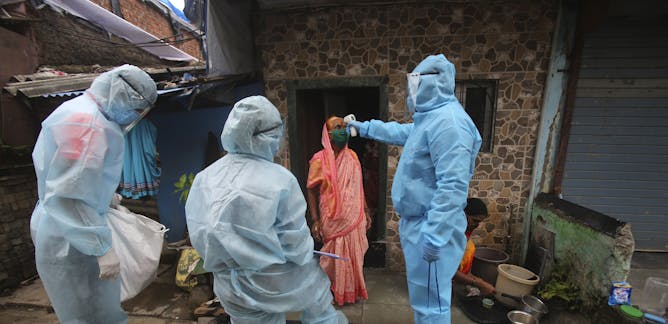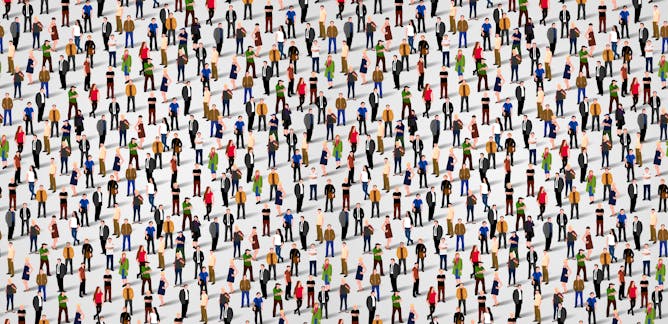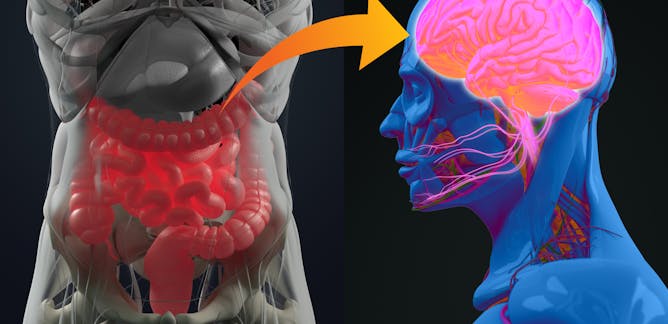|
When a recent report claiming the world would see “jaw-dropping” declines in global fertility was published last week, it raised eyebrows among some demographers. Predicting what will happen to population growth in the future is hard: there are different ways to do it and they come with large amounts of uncertainty. Brienna Perelli-Harris and Jason Hilton explain how such projections are made – and why we don’t need to start panicking just
yet.
The early departure of the head of the World Trade Organisation, the body that deals with trade between nations, has created an opportunity for an African to take over. Africa is one of the key blocs within the WTO: it accounts for nearly 27% of membership. Yet an African has never run it. Mills Soko and Mzukisi Qobo make a case for why there’s no better candidate than former Nigerian finance minister Ngozi Okonjo-Iweala.
|

Fertility rates: hard to predict.
noBorders – Brayden Howie/Shutterstock
Brienna Perelli-Harris, University of Southampton; Jason Hilton, University of Southampton
Why there's no need to panic over warning of 'jaw-dropping' fertility decline.
|

Ngozi Okonjo-Iweala’s global finance expertise would serve the WTO well given the nexus between trade and finance.
Mills Soko, University of the Witwatersrand; Mzukisi Qobo, University of the Witwatersrand
Africa accounts for nearly 27% of the World Trade Organisation's membership and 35% of members from developing countries, but an African has never run it.
|
Science + Technology
|

Yael Annemiek Engbers, University of Liverpool; Andrew Biggin, University of Liverpool
The Earth's magnetic field is a lot weaker than we would expect around the island of St Helena.
| |

Predrag Slijepcevic, Brunel University London
The atmosphere has a microbiome of bacteria, viruses and fungi that travel around the world on highways in the sky.
|
|
|
Health + Medicine
|

Nicole Hassoun, Binghamton University, State University of New York
The high cost of pharmaceuticals often means only the richest patients get lifesaving medicines. As coronavirus drugs emerge, it will require hard, creative work to ensure they're available to all.
| |

Adam Kleczkowski, University of Strathclyde
We'll achieve herd immunity when 60% of the population is immune to COVID. No, wait, make it 70%. Or is it 80%?
|
|
|
En español
|

José Antonio Uranga, Universidad Rey Juan Carlos; Raquel Abalo Delgado, Universidad Rey Juan Carlos
¿Por qué el estrés emocional nos genera mariposas en el estómago? Porque no solo hay neuronas en el cerebro: también abundan en las tripas, donde forman el sistema nervioso entérico.
| |

Rubén Garrido-Yserte, Universidad de Alcalá
Con el acuerdo alcanzado este 21 de julio en Bruselas parece que la UE ha sabido encontrar una vacuna en el terreno económico que le permitirá sobrevivir a la COVID-19.
|
|
|
En Français
|

Sébastien Houde, Grenoble École de Management (GEM); Carine Sebi, Grenoble École de Management (GEM); Joachim Schleich, Grenoble École de Management (GEM); Mark Olsthoorn, Grenoble École de Management (GEM)
En réponse à la crise sanitaire, L’Europe peut-elle mettre son économie sur une voie plus verte ? Le Baromètre de l’énergie a interrogé une centaine de spécialistes pour répondre à cette question.
| |

Nicolas Sabouret, CentraleSupélec – Université Paris-Saclay
On pourrait penser l’IA infaillible. Pourtant ces programmes sont conçus pour simplifier des problèmes complexes et donner des résultats satisfaisants mais inexacts.
|
|
|